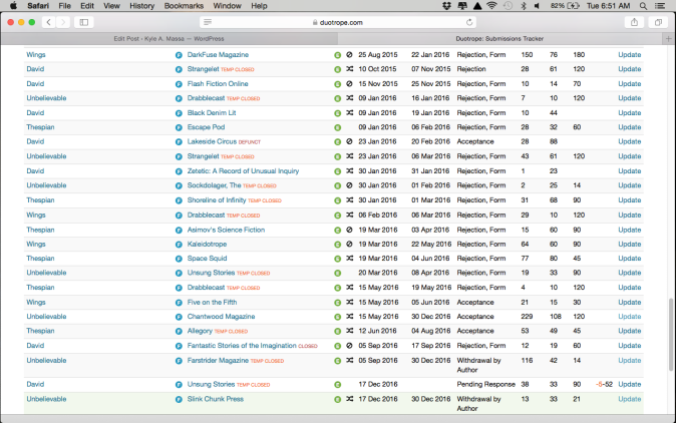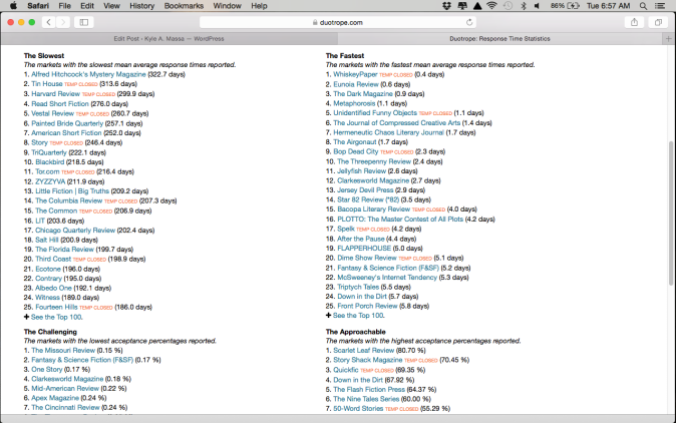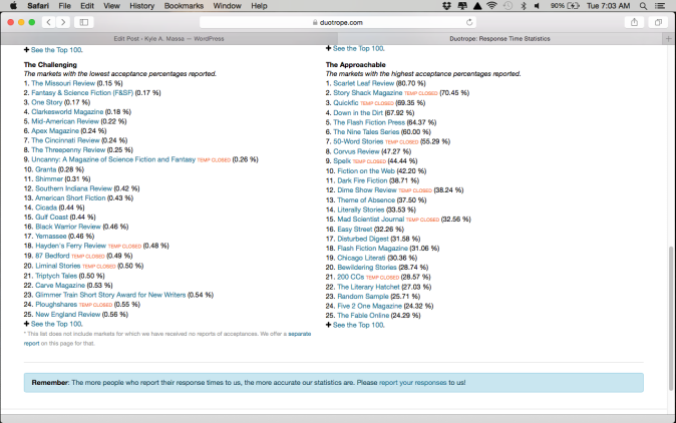Writing short stories is tough. Getting them published might be even tougher.
But hey, you’re not alone. Though you might not know it from a quick Google search, online markets for short stories are plentiful. The key is finding the right place for your story.
The best solution I’ve found is a handy little site called Duotrope. If you need help tracking submissions, learning more about publishing tendencies, or discovering brand new markets, you’re gonna dig Duotrope.
Track Those Submissions
When you create your account, here’s what you’ll see first:

Duotrope shows how many pieces you’ve got out in the wild currently, how many submissions you’ve made in the past 12 months, and your acceptance ratio. Plus, you can get knee-deep in the nitty and the gritty.

I love this screen because it gives me a quick glance at what stories are where and what’s happening with them. Also, the constant rejections make you feel like a real writer.
Detailed Market Details
Hate waiting? Me too. If you want to know what markets get back with a “yes” or “no” the fastest, this is your screen.

As you can see, these range from the expedient to the glacial. Honestly, unless I absolutely love a particular market, I won’t submit to them if they’re on the slowest list. By contrast, if they’re on the fast list, I’m much more likely to send them my story.
This next report is one of my favorites. The percentages listed here indicate what portion of submissions are accepted.

For writers, getting our names out there is essential. Approachable markets allow us to do that, even if they can’t always pay us.
Discover New Markets
Before I found Duotrope, I searched for new markets with search engines. I soon found that though Google is great for finding memes, it’s not so great for finding online fiction magazines. Here’s why:
When you search with Google, their systems prioritize sites with high domain authorities. This means that sites which generate more web traffic and have more content will appear higher on the results list. However, since you’ve probably heard of all these places before (think F&SF, Clarkesworld, Lightspeed), Google probably isn’t helping you find anything new.
Duotrope, on the other hand, allows you to get super specific with your searches. By doing so, you can find far more new destinations for your writing.
Check out all those criteria. For best results, mark off as many categories as possible. You’ll be amazed at how many as-before unknown markets appear.
In Conclusion
Duotrope is one of the best companions a writer can have. Though there is a $50 yearly subscription fee, I think it’s well worth the small investment. Check it out and decide for yourself!
